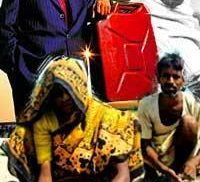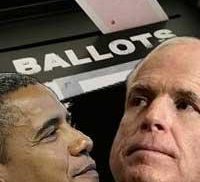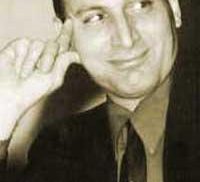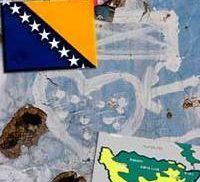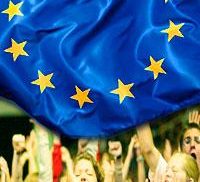This dossier stems from the debate sparked by Elizabeth Suzanne Kassab’s article—which opens this collection—on the transformation of the Arab intellectual scene after 2011. Her notion of a “new contemporary” in Arab thought prompted a series of contributions that do not aim to offer solutions, but rather to raise new questions, probe unresolved issues, and put forward critical perspectives. Bringing together Kassab’s essay and two related pieces, the dossier explores how Arab thought is redefining itself in light of the uprisings, the failures of political transitions, and the moral and intellectual rupture marked by Gaza.
Dossiers
- There are only two castes: men with large bellies and those with small ones. And only two destinies: to eat or be eaten. The portrait of India that emerges from Aravind Adiga’s novel entitled “The White Tiger”, recently the winner of the Booker Prize, differs greatly from the super-globalised and technological one often described. This other India is a harsh and dark reality in which "the planet’s largest democracy” still has to deal with poverty and human rights and where, every day, politicians and civil society trample on Gandhi’s legacy.
- The economic crisis will make George W. Bush’s successor’s job even more difficult. In such difficult times, Obama stands out as a safe and serene power, but the elections have not yet taken place. “The factor of race, obliquely if inconsistently revived by McCain’s camp – writes Andrew Arato – may still reappear in some unexpected form”. Two different visions of the nation and of the world, and even of religion oppose each other. “Will Obama disappoint us?” wonders John Judis looking to the future. And is America at last ready to elect a black candidate to the White House?
- What has happened to Egypt’s democratisation? After a few minor concessions, the regime is once again closing any real space in the political arena to the opposition, whose only voice today seems that of bloggers. The price of essential food has risen by 60%, a blow to 40% of the population obliged to survive on less than one dollar a day. Further damage to the country’s image came when the Foreign Minister triumphantly announced in New York the release of the eleven tourists kidnapped in the desert, who instead were held hostage for another week. Would change not be good for such a country?
- Non-violence as the answer to violence. Dialogue as the antidote for clashes between civilisations. And: listen, learn and lead. How modern are Mahatma Gandhi’s lessons? This was discussed by Iranian philosopher Ramin Jahanbegloo expressing his thoughts in the video-chat room on the Avoicomunare.it website, launched by Telecom coinciding with its successful advertising campaign based on Gandhi. “I believe in his dream of One World – said Jahanbegloo, whose book entitled Reading Gandhi in Teheran is about to be published in Italy (Marsilio, I Libri di Reset) – But this means that the world belongs to us and we must all assume responsibility for it”.
- They leave their whole lives behind, risking their lives on journeys that at times are with no return. Those who succeed, wander around our cities without a name, exploited by ruthless entrepreneurs and labelled as enemies by populist politicians. Public opinion recently learned off yet another massacre off the coast of Malta. Illegal immigrants have however played a leading role in some of the saddest stories of this Italian summer; a man killed while travelling under an articulated lorry, another arrested after reporting a crime. The victims of poverty and fear, these are the new marginalised people, the pariahs of the West.
- Since the war ended in 1995 Bosnia no longer makes the headlines. Kosovo has stolen the centre-stage. But Sarajevo may soon return to be in the news. The central government has limited power, the country has serious economic problems and ethnic divisions are also reflected in the existence of two different states that are totally separate: the Srpska Republic (with a Serb majority) and the Federation of Bosnia and Herzegovina, where Croatians and Muslims coexist. The Serbs threaten independence and look to Belgrade. "But Bosnia will live” , as Wolfgang Petritsch, the International Community’s former High Representative for Bosnia explains to Resetdoc.org. This time Europe will have to pay attention and not be taken by surprise.
- The Irish rejection of the Lisbon treaty has resulted in the reappearance of profound pessimism. Political Europe is obliged once again to call a halt. The cliché states that Europe is distant from its citizens, that it no longer has the mission or the spirit of its founding fathers. If however one looks outside the continent, one observes that the EU project has become a model for many, from the Arab world to Africa and all the way to South East Asia. The citizens of the Old Continent often take the EU for granted and not many would be ready to state that they are proud to be Europeans. Philosopher Tzvetan Todorov is however one of them and he explains why to Resetdoc.
- “We need a communications strategy emphasising above all the image of a moderate Islam”, as the new President of the French Muslims, Mohammed Moussaoui, told Resetdoc. Moussaoui presents himself as an enlightened and polyglot Muslim, but he too appears to represent an Islam “imposed from above”. Relations between Islam and Europe continue to be marked by misunderstandings, timid steps forward and ambiguity. As proved by the French example, representative bodies are all too often “managed” by the State, and their internal level of democracy leaves a great deal to be desired. What is happening as far as the integration of European Muslims is concerned? Who represents them?
- The arrival of Arab satellite channels is changing the world of global communication. Now that Al Jazeera too has an English language channel, world markets are enriched by another point of view. The Americans, the English, the French, the Russians, the Arabs and the Germans, all have at least one channel dedicated to global viewers. With increased competition is has become increasingly hard to hide the truth, but there is also the risk that the battle will be fought above all playing on sensationalism, feelings and prejudices. After all, an enemy always increases the ratings. Ideas and thoughts for avoiding a media clash of civilisations.
- Kenya, Kansas, Indonesia, Hawaii. The biography of Democratic candidate for the White House, Barack Obama is unique. Young, black, well-educated, open and an optimist, the Illinois Senator portrays everything that is the opposite of America’s last eight years. He represents the America we have always loved, and, for this reason too, Europe and world are rooting for him in the November presidential elections. But is America ready to elect its best son? What will be the most important issues addressed in the campaign opposing the Republican candidate John McCain?



